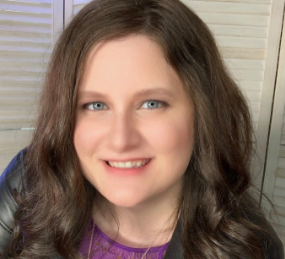
Have you been diagnosed with ASD but are now overwhelmed with the idea that you actually don’t have it?
Could your autism assessment be inaccurate?
It’s not uncommon for an adult, newly diagnosed with Autism Spectrum Disorder, to then begin wondering if this is a misdiagnosis.
This doubting of the ASD diagnosis may likely be more prevalent in middle-age people, being that they’ve lived so many years not realizing that they were autistic – and instead, attributing their oddities and challenges to a host of other possible causes.
Autistic imposter syndrome can be quite intense. And it doesn’t help that the autistic mind’s propensity towards over-analyzing then begins over-analyzing nearly everything that went on during the assessment.
“I only started to doubt I was autistic after I was diagnosed (and in a very illogical, intrusive thoughts kind of way),” says Jess Owen, co-creator of thewyrdsisters.co.uk with her sisters and diagnosed with ASD at 25.
“I’d put so much effort into compiling evidence for my assessment, I somehow convinced myself that I’d stretched the truth and tricked the psychologist.
“I know now that this is just imposter syndrome talking.
“Pre-diagnosis, I never doubted that I was autistic; but I was very, VERY worried that the assessors wouldn’t see it.
“I’m a heavy masker, articulate and have many creative special interests, and I’d heard so many stories of people being denied a diagnosis for these reasons.
“I also had a job, a house and a long-term partner, which I thought might count against me.
“Autism had become so important to my identity, I didn’t know what I’d do if it was taken away.”
I myself was late diagnosed with ASD, and it wasn’t long before I, too, developed autism imposter syndrome. I called it very late diagnosis autism imposter syndrome.
I’d always known that I was different … but … autistic? It took me way too long to finally figure this out.
Seems that every autistic person I corresponded with had either meltdowns or shutdowns in adult life.
I don’t have these experiences – though I do go into a brief hissy-fit mode in private when something suddenly goes wrong like a lightbulb going out or a loss of Internet connection.
Even if I slug something during one of these moments (and that could include my thigh), they are not actual meltdowns.
I’ve been on my own since age 22 and never needed any assistance with life skills or transitioning from living with my parents to moving out on my own, which was out of state, at that.
The autistic imposter syndrome kept taking nips at me. It nips at many others, too.
“I did doubt it slightly for a bit,” says Jennifer Parr, a multimedia artist.
“Since I had to fight so hard to even be seen for a diagnosis, I thought maybe I was answering things the way I was because I knew that’s what was indicative of autism.
“Especially since my experience differs from what is stereotypically seen about autism.
“However, I also kept looking back more on various aspects of my life, and it all just made more and more sense.
“I realized I’d been gaslighted enough my entire life that I didn’t need to do that to myself too.”
How to Combat Autistic Imposter Syndrome
It helped to remind myself of all the problems I DID have, that were due to my autism — that could only be explained by autism.
One was having the lifelong experience of never fitting in, no matter what group of people I was with, no matter what the circumstance or context.
Even when I was among a group of Born Again Christians in college, who were the very non-judgmental, open-arms type – not the sour, “You’re going to hell!” type – I still felt disconnected and unable to integrate with these cheery people.
They were so tolerant of my oddness and were patient during my info-dumping, yet I just never felt like I belonged.
Gee, you know you really have a problem with social skills when you can’t even feel connected to a group that preaches love everyone and welcome everyone and don’t judge.
If you keep doubting your autism diagnosis, remind yourself of all of your peculiar sensory issues.
If you have difficulty with eye contact, then gee, this is a strong case for ASD.
If you’ve always had good eye contact, don’t let this make you doubt your ASD diagnosis.
My examiner told me that people can be on the Spectrum and still have good eye contact.
Join autism events and you’ll quickly find other autistic people who will hold eye contact with you.
Ask if they’re looking directly or faking it, and – at least with my experience – most will say it’s a direct contact.
You can also gain reassurance that you’re actually autistic by reading autism forums. Much of their narrative resonates very strongly with me.
What will be especially reassuring are threads about the things that NTs do that really puzzle, confuse, annoy or anger autistic people.
See how many of the gripes that you agree with. I always find myself nodding my head for nearly every one of them!
I also rock and vocally stim in private. Even NTs stim, but come on, I just can’t see a “normal” person stimming the way I do.
If you have a lot of stimming behaviors that you know would make NTs think you were really weird if they were secretly observing, this should help erase any doubts that your autism diagnosis is wrong.
Have you felt different since childhood? This is a nearly universal trait among Autistics.
• Have trouble figuring out facial expressions or others’ feelings?
• Have you ever asked yourself, “How does one make friends”?
• Can you make friends but then tend to lose them for no apparent reason?
• Are you lousy at telling when someone’s kidding around with you?
• Do you have difficulty understanding common metaphorical phrases such as “You’ve been grandfathered into the service” or “You need to take it with a grain of salt”?
• Do you tend to get overly fixated on new interests? Do you have any lifelong interests that other people consider really odd – interests that you know nobody at your neighbor’s huge summer BBQ party would be interested in discussing?
Is autism the best – and by far at that – the best explanation for the way you think and see the world, your inner experiences and outward behaviors, your quirks and strangeness, your sensory issues and struggles?
ASD imposter syndrome won’t disappear overnight. Give it some time.
Attend events for autistic adults. Hang with “your own kind.” Keep telling yourself, “I am actually autistic!”
 Jess Owen, along with her sisters Emily and Abi, run thewyrdsisters.co.uk, about autistic sisters navigating a neurotypical world. Their goal is to spread information and awareness, and open up a conversation about neurodiversity that will make life easier for everyone.
Jess Owen, along with her sisters Emily and Abi, run thewyrdsisters.co.uk, about autistic sisters navigating a neurotypical world. Their goal is to spread information and awareness, and open up a conversation about neurodiversity that will make life easier for everyone.
 Jennifer Parr has always had a devoted obsession to art and creativity. Her ultimate goal is to help others discover their own creative side and find enjoyment through art and crafting.
Jennifer Parr has always had a devoted obsession to art and creativity. Her ultimate goal is to help others discover their own creative side and find enjoyment through art and crafting.
 Lorra Garrick has been covering medical and fitness topics for many years, having written thousands of articles for print magazines and websites, including as a ghostwriter. She’s also a former ACE-certified personal trainer. In 2022 she received a diagnosis of Level 1 Autism Spectrum Disorder.
Lorra Garrick has been covering medical and fitness topics for many years, having written thousands of articles for print magazines and websites, including as a ghostwriter. She’s also a former ACE-certified personal trainer. In 2022 she received a diagnosis of Level 1 Autism Spectrum Disorder.
.









































